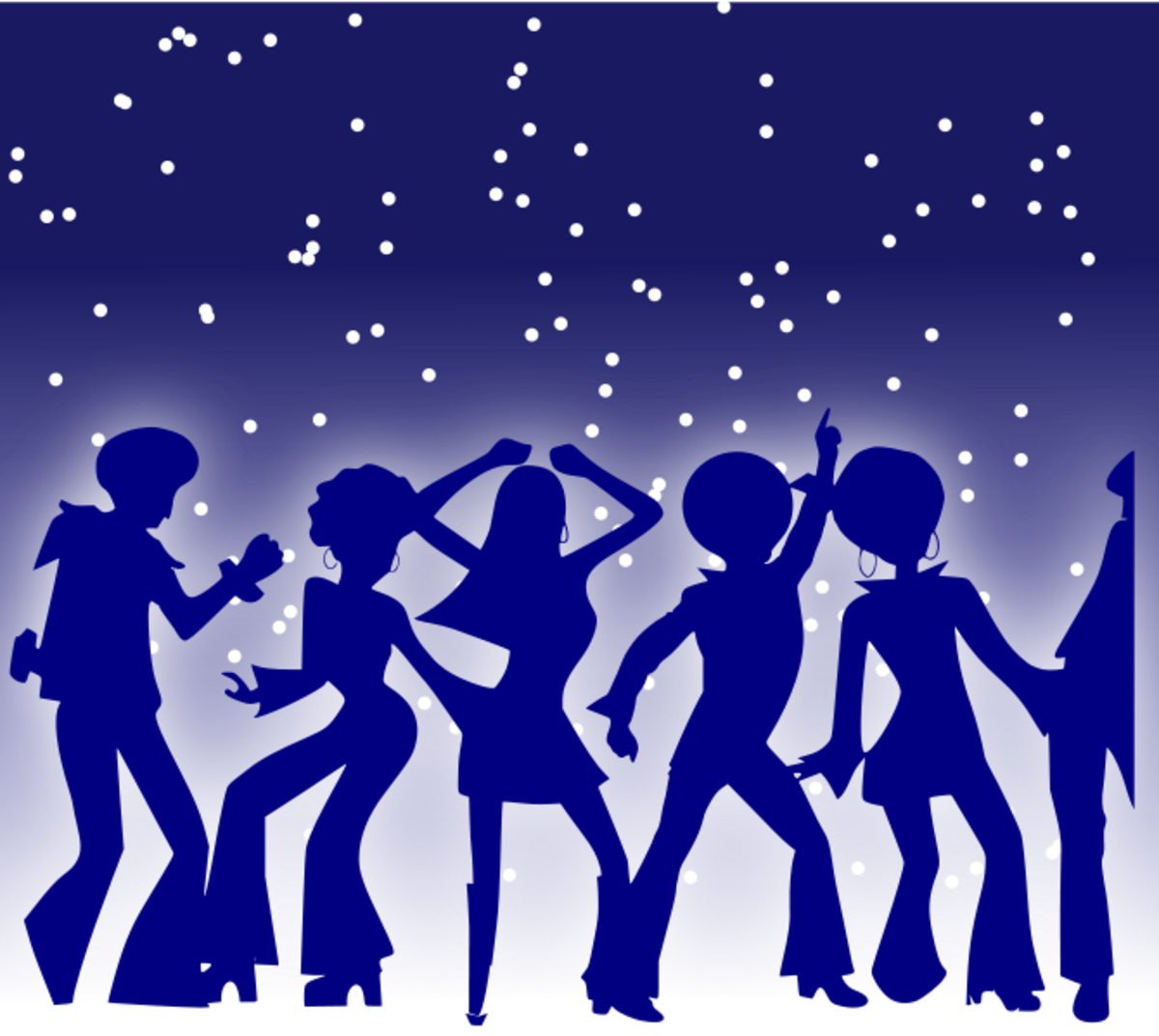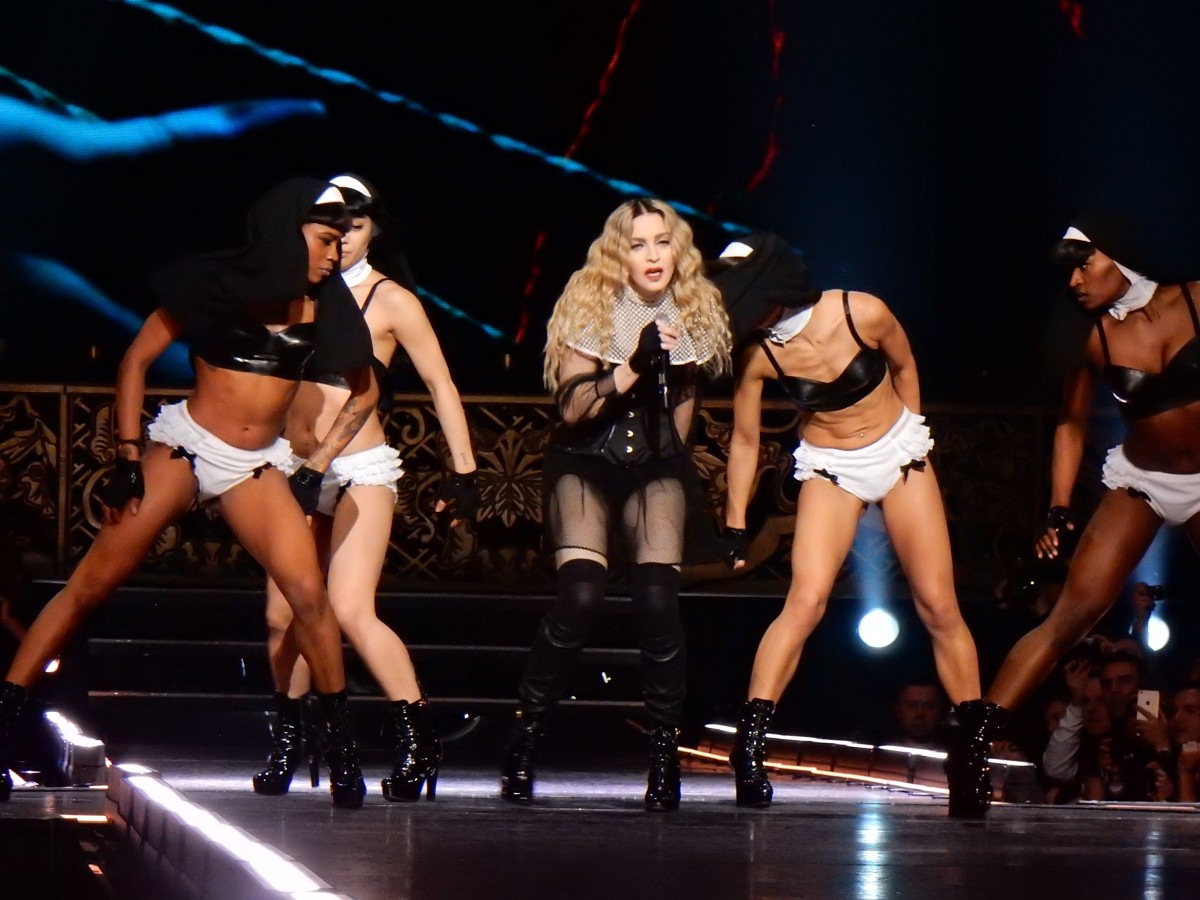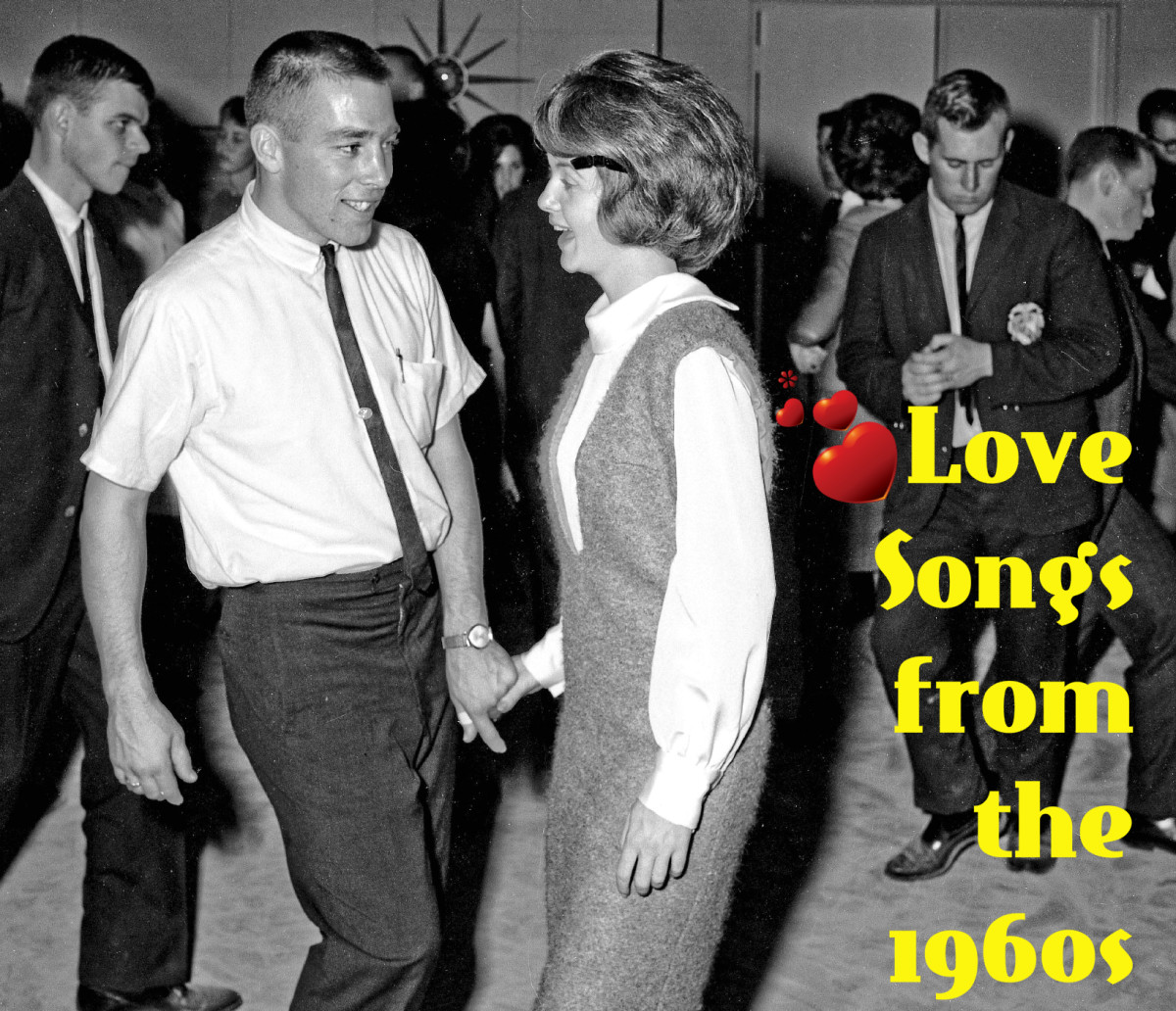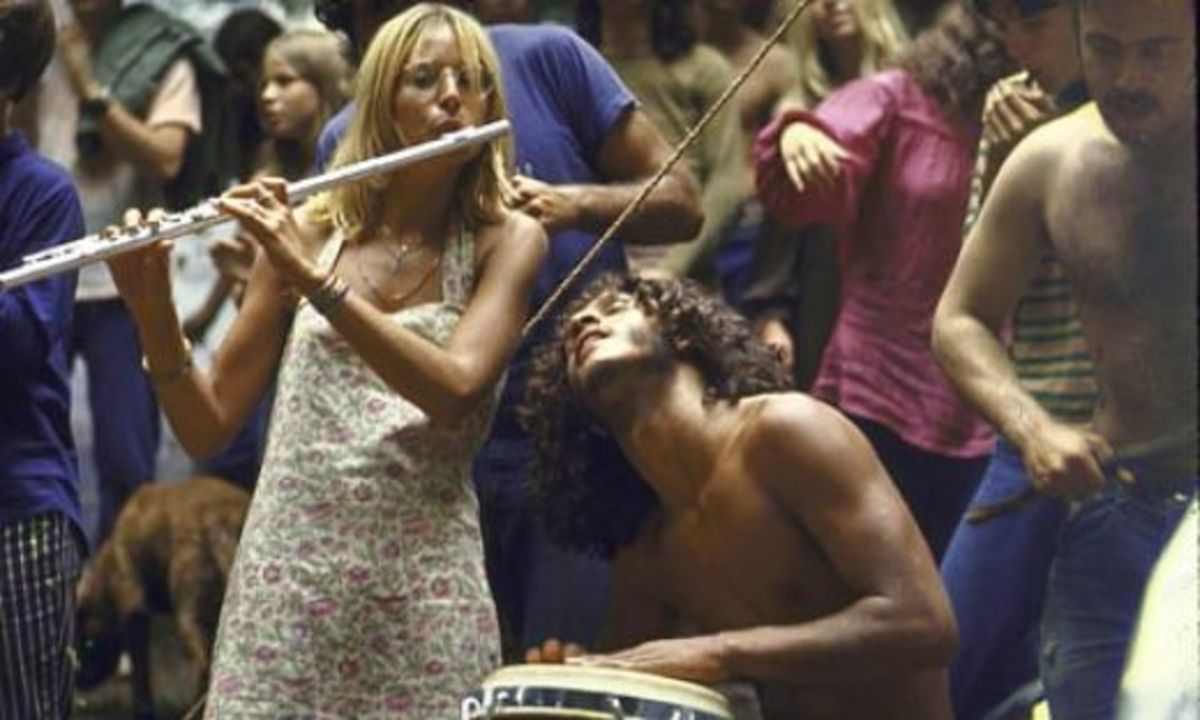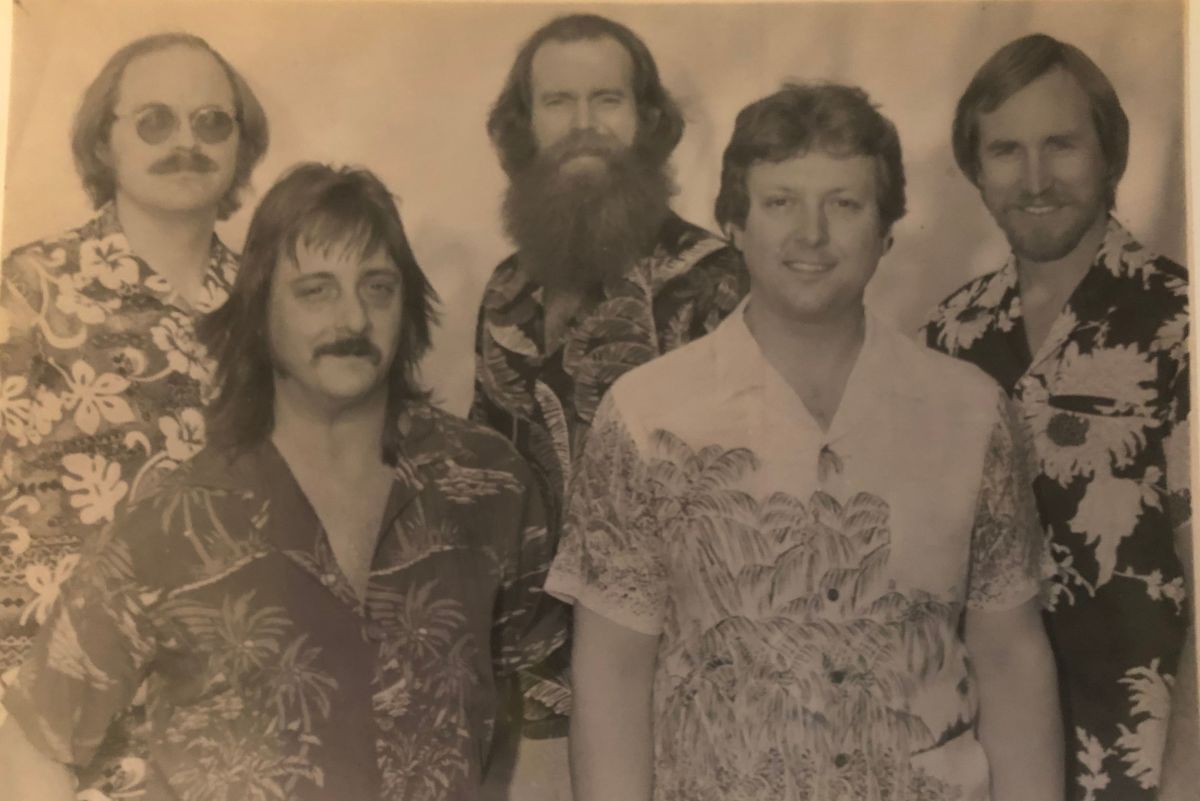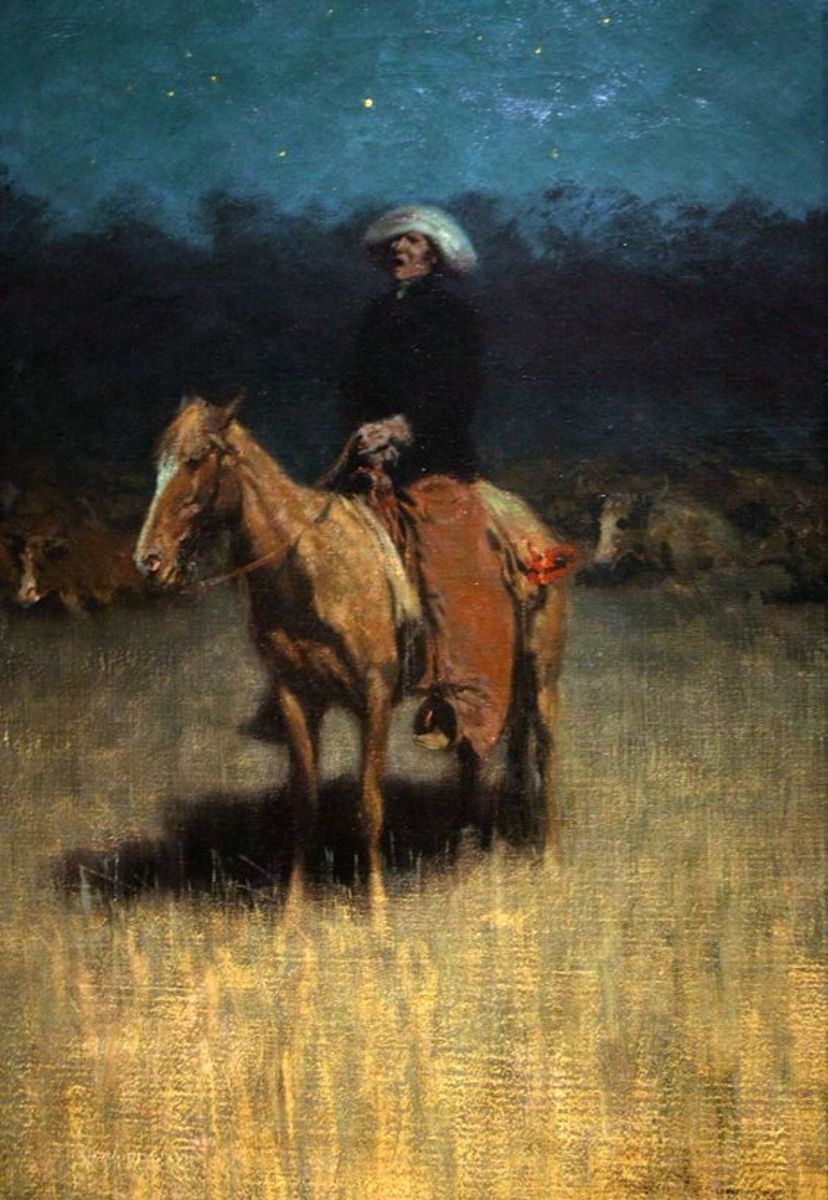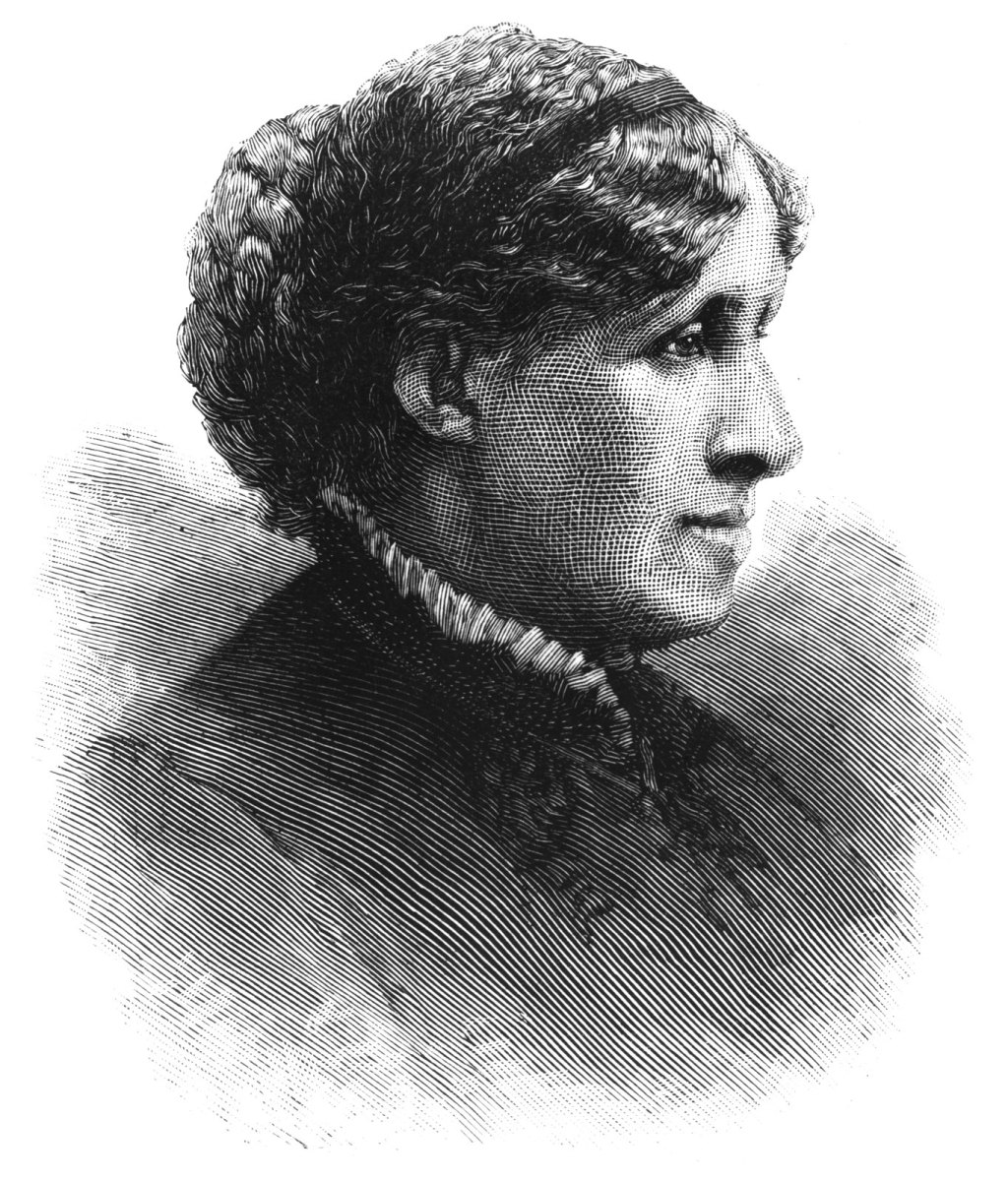DISCO & SOUL music history (also Dance and R&B) - links to 13 songs!
That's The Way I Like It" - KC & The Sunshine Band
Before disco got its name
Barry White: One of the first artists of the 1970's to popularize the "sound" of what later became known as disco music was Barry White and his Love Unlimited Orchestra.
A classically-trained piano player, Barry White rose to superstardom by assembling a real symphonic orchestra to provide the backround for the love songs he wrote.
There were plenty of slow love songs featuring his gravelly bass vocals, the equivalent of whispering to someone you're lying next to in bed. White had a Darth Vader voice long before "Star Wars" existed, but unlike Vader, Barry actually could sing!
Remember, love songs don't always have to be slow tempo songs. Barry White wrote slow songs and fast songs, but they ALL were unquestionably love songs.
Besides his lusty slow-tempo love ballads, Barry White wrote and sang a number of up-tempo songs, which collectively helped popularize the foundations of what later became known as disco music.
Click here to watch and listen to Barry White's "You're The First, The Last, My Everything", this performance coming a year or so before his death in 2003.
KC & The Sunshine Band: Although the majority of disco artists were black, there were a few who sounded as if they were black, like KC & The Sunshine Band. Find and listen to their first hit, "Get Down Tonight" and "I'm Your Boogie Man", as well as the one featured on this page, "That's The Way I Like It".
When the revolutionary dance movie "Saturday Night Fever" debuted a few years later, the soundtrack included a song by KC & the Sunshine Band which was not one of the more popular songs from their album. But the phenomenal success of that movie brought KC's album up to popularity all over again.
The infectious rhythm of Chic: Some bands were technically not bands at all, but a bunch of featured singers like the three female vocalists of the group Chic (pronounced "sheek") who were accompanied by studio session musicians (and in the case of this video, even the song's actual composer, highly-acclaimed producer Nile Rodgers, who's shown having fun at the opening of this video). The hit songs of Chic included "Dance, Dance, Dance", "I Want Your Love" and the one featured here: "Good Times", a song that has has a particular distinction. Read the next paragraph to learn what makes this song unique.
A rhythm track that created a new genre: Interestingly, the instrumental, non-vocal parts of "Good Times" before and after the singers were singing, were used more and more in nightclubs as the rhythm track while people in the club grabbed the mic and would recite rhymes over the infectious music. This technique, using "Good Times" as well as hundreds of other popular dance tracks of the day, later formed the foundation of what later became known as hip hop / rap music. In fact, the bass and rhythm for "Good Times" became the foundation track of the first crossover hip hop song, "Rapper's Delight" by the Sugarhill Gang.
"I Will Survive" - Gloria Gaynor
"Saturday Night Fever" medley of songs - Travolta stars, Bee Gees sing
Disco's divas & dudes
Donna Summer: Some of the greatest acts in the USA are from other countries. Some American performers wanted that international magic, so they actually left the countryrto practice their musical skills in Europe, for example, then return to this country being billed as a "big star from Europe".
That's exactly what Donna Summer did.
After years touring and performing live in Europe, Donna Summer Becoming a gigantic solo act in Europe after years performing live there, Summer finally hit it big in USA as "the latest musical sensarion from Europe" with a her hypnotic first hit, "I Feel Love". Song after song made Summer an even larger star worldwide, including, "Bad Girls", "On The Radio", and the one featured on this page, "Hot Stuff." Click here to watch a video of the song, complete with lyrics. By the way, this is the Karaoke version where the lyrics appear as the song is sung, so if you want to sing along with Donna, close the door first. :)
Gloria Gaynor: Another disco star created what became known in some circles as the "female national anthem" with her signature song called "I Will Survive", a song about women standing strong in the face of adversity. Click the video box on this page to watch and listen to that song.
Bee Gees: This group of 3 guys from Australia actually had two separate careers. Lead singer Barry and his brothers Maurice and Robin Gibb debuted as the Bee Gees during the mid-sixties as a rock band with a string of very successful pop/rock hits like "New York Mining Disaster", "I Started A Joke", "Words" and "Holiday" (no, not "Holiday" by Madonna or "Holiday" by Green Day, those are all completely different songs from the Bee Gees song of the same name.) Then, following a number of years with little success, they were asked to write and sing music for a low-budget movie about a guy and a nightclub called "Saturday Night Fever".
"Fever" facts: Saturday Night Fever became one of the largest grossing motion pictures of all time, and the songs from that movie, showcased on the 2-disc soundtrack album generated the largest album sales in history to date. The movie also made a superstar of young actor John Travolta who danced his way throughout the morvie.
The Saturday Night Fever video featured on this page is a medley of a songs from that album PLUS the actual footage that accompanied these disco classics, which were all very new and very hot at the time. In all nightclubs worldwide during the peak of this movie, you were never more than a few minutes away from the DJ playing another song from the album.
In the medley video on this page, you'll first hear the Bee Gee's "Stayin' Alive" (played during the opening scene of the movie), then later in the movie we the famous nightclub dance scene featuring, "Disco Inferno" by the Trammps, the Bee Gee's "You Should Be Dancing" and then "Night Fever".
Most movies feature a variety of artists, and although Saturday Night Fever had a number of artists, it contained a record-breaking FOUR soon-to-become top hits by the Bee Gees. Besides the three mentioned in the last paragraph, the movie also featured the Bee Gees ballad "How Deep Is Your Love" as well as a song sung by Yvonne Elliman, "If I Can't Have You", which just happened to be WRITTEN by Barry, Maurice and Robin, the three brothers from the Bee Gees.
Needless to say, the worldwide music and disco revolution created by this movie not only revitalized the career of the Bee Gees, but far distanced their "first" career as rock artists and made them into multi-millionaires. The Bee Gees would be forever known by and defined by their disco hits from this movie.
"Baby I Need Your Lovin" - Four Tops (1965)
"Superstition" - Stevie Wonder (1975)
The soul of Motown
In the late 1950's and early 1960's, a record producer named Berry Gordy created a record label which soul and R&B artists could call home. Back then the automobile capitol of the world was Detroit, Michigan and the city's nickname "Motor City" was the inspiration for the name of the label, Motown Records.
Throughout the sixties and seventies, Motown Recortds became the hub for many of the most successful top soul and R&B artists.
Top 40 radio stations in the sixties and seventies made millions from keeping a balanced rotation of rock artists and soul artists, so if you heard the rockin' of the Beatles or the Rolling Stones, you'd never be far away from another Motown artist. And there were many!
Here are just 4 of Motown's biggest acts:
The Supremes: With lead singer Diana Ross, the Supremes were the new incarnation of the R&B girl groups of the fifites in a shiny new package. Besides their breakthough first Motown release, "Where Did Our Love Go" which you can hear here, also check out their other chart-topping hits like "Baby Love", "I Hear A Symphony" or "Love Child".
The Four Tops: The male counterpart to the Supremes, Motown launched the Four Tops in the mid sixties as well. Their hits "Reach Out I'll Be There", "Standing In The Shadows of Love" and "Bernadette" kept America dancing, along with one of their biggest hits showcased on this page, "Baby I Need Your Lovin".
Stevie Wonder was the youngest of the Motown acts, signed by the label at age 12 when he was called "Little" Stevie Wonder in 1963, the same year he had his first #1 hit with "Fingertips, Part II". For the next 50 years, Wonder continued a lifetime of writing, arranging and singing some of music's biggest hits.
Just one of Stevie's hits, "Superstition" is featured on this page, but he has too many hits to list here, including "My Cherie Amour", "Higher Ground", "I Was Made To Love Her" and "Livin' For The City.
Barack Obama asks Stevie Wonder to perform for a few hundred thousand of his friends: Another of Stevie's biggest hits from the sixties became the signature song of Obama's presidential campaign: "Signed, Sealed, Delivered" (hear it by clicking the title) was literally delivered, in person, on stage, by Stevie in the summer of 2008 in Denver, Colorado during the Democratic National Convention, on the same evening that Obama gave his acceptance speech. That night, Stevie performed "Superstition", too.
Marvin Gaye was an R&B crooner who specialized in hip love songs. Known as a modern day Frank Sinatra, and a decade before Barry White gave lovers their own background music, people were hugging and dancing slow to Marvin Gaye's soulful mood music.
In the mid-to late 1960's as rock groups were evolving from pop into songs with more social awareness, soul/R&B music was going through the same metamorphosis. Marvin Gaye's pop career evolved into songs he wrote with deep social concerns about war and race relations.
For example, Gaye's hit "What's Goin' On" (click to hear the original recording) was a direct slam against social injustice and a direct protest of the Vietnam war. The lyrics to his "Mercy Mercy Me (The Ecology)" wondered aloud about environmental issues. Of course, there was still room for love songs, and Marvin Gaye wrote one of the ultimate love ballads of the early 70's era, "Let's Get It On". , Hear one of his most popular pop hits, "I Heard It Through The Grapevine" by clicking here.
Soul's early adopters
Sam Cooke climbed to fame in the late 50's and early 60's with numerous hit songs everyone could relate to. One of the first black artists to gain a large white following, Cooke's songs became instant classics, including "Another Saturday Night", "Cupid" and"You Send Me."
The Sam Cooke song featured on this page, "A Change Is Gonna Come" hit home with millions of fans, particularly African-Americans who could hear the story, feel the pain and add to the hope for racial equality. The video on this page displays all the lyrics, as well as showing some of the racial issues of the era.
Ray Charles was one of the earliest black singers to break into the mass-appeal American music market and put a face on the growing genre of R&B music.
From the 50's and 60's and as recently as an album of duets with today's top performers like Willie Nelson, Norah Jones and Bono, released about a year before his death in 2005, Ray Charles inspired thousands of other R&B and rock performers by combining elements of jazz, R&B and country into his music.
Charles wrote many of his own songs like the driving rhythm classic, "What'd I Say", featured on this page.
Aretha Franklin has been known as "the Queen of soul" for over 45 years, with well over 25 hit songs to her name.
Besides hits like "You Make Me Feel Like A Natural Woman", "Rock Steady", "Chain of Fools", and "Freeway of Love", Aretha's most well-known song, "Respect" (hear a 1968 live performance by Aretha, click here), is her signature song and remains well-known and very popular to this day.

